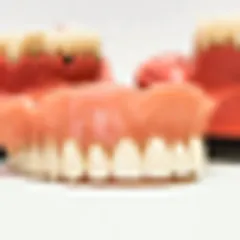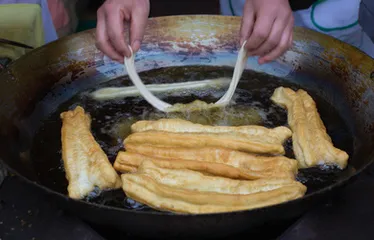Low-calorie sweet potato mooncakes, less oil, and healthy Mid-Autumn Festival
Recommended this week: Low-calorie sweet potato mooncakes low-calorie food exchange area>>

sweet potato 100 g calories: 99 calories

Purple sweet potato 100 g Calories: 82 calories

Ice skin powder (no steaming) 100 g Calories: 320 calories
Excipients:

White oil 50 g calories: 438 kcal

cooked glutinous rice flour 180 g calories: 150 calories

butter 10 g calories: 88 calories

Water 50ml Calories: 0 calories
Tools:

1 mooncake mold
Total Calories: 209 Calories/Person-More Calories Inquiry Inquiry Your Body Needs Calories
Sweet potato mooncakes-the principle of slimming
Principle of slimming: Eating sweet potatoes will not only not gain weight, but can lose weight, build body, prevent sub-health, and relieve constipation and detoxification. Every 100 grams of fresh sweet potatoes contain only 0.2 grams of fat, which produces 99 kilocalories of heat, which is about 1/3 of rice. It is a good low-fat and low-calorie food. At the same time, it can effectively prevent sugar from turning into fat, which is conducive to weight loss and bodybuilding. Sweet potatoes contain a large amount of dietary fiber, which cannot be digested and absorbed in the intestine. They can stimulate the intestine, enhance peristalsis, relieve constipation and detoxify, and have a good effect on elderly constipation. Anthocyanins in purple sweet potatoes have antioxidant activity and can clear free radicals in the body. Long-term consumption can reduce the chance of suffering from some chronic diseases, so they have health effects. The ice skin mooncake is based on glutinous rice flour and rice flour. The protein content is extremely low and will not burden the kidneys. The mooncake filling we chose is made purely of sweet potatoes. It has natural sweetness and high fiber. The calories are only 120 calories, which is half less than traditional mooncakes.
The "delicious traps" of traditional mooncakes include high cholesterol, high fat, high sugar and high calories. For example, duck egg yolk, which is often added to mooncakes, contains 300 mg of cholesterol in half a tablet, and lard contains 15 mg in a tablespoon. After eating it, it far exceeds the 200 mg needed by the human body in a day. In addition, a mooncake contains about three to six tablespoons of sugar, which accounts for one-third to one-half of the daily requirement; while a tablespoon of oil is one-sixth of the daily requirement. Patients with cardiovascular or kidney disease should give it a quick taste. It is best to share a mooncake with others, eating only one-quarter to one-sixth of it.
Sweet potato mooncake-making steps

1 Peel the skin, wash it and cook it
Wash the sweet potatoes and purple potatoes, cut them into thick slices, spread them flat on a plate, wrap them with plastic wrap, and heat them in the microwave over high heat for about 5 minutes. You can stick them through with chopsticks.

2 Making of sweet potato stuffing
Peel the ripe sweet potatoes and purple potatoes, cut them into large pieces, put them into a blender, and beat them into a sweet potato paste. If you don't have a blender, you can choose to press them into a paste with a spoon. If you want a better taste, you can add a small amount of butter to the sweet potato paste. The filling has a better taste.

3 Making mooncake skins
Add 100 grams of ice skin powder and 50ml of water, stir slowly to stir the ice skin powder into a ball. You can add water in several times and stir. The amount of water should not be too thin or too dry according to the degree of dough of the powder. Since ice skin powder is cooked powder, drinking water is needed to add water.

4 Smooth dough
Stir the dough with ice skin powder, add 50 grams of white oil in three times, and knead the dough into a smooth dough to make the ice skin of the ice skin smoother.

5 Refrigeration, post-processing
Rub the smooth dough into a large ball, then place it in the refrigerator for an hour to relax the ice skin. After an hour, take out the loosened dough from the refrigerator, place it in a bowl containing cooked glutinous rice flour, and roll it once to fully soak the dough with the cooked glutinous rice flour, which can serve as an anti-stick mold.

6 Wrap in sweet potato stuffing
Take out the dough in your hand, take a small piece and flatten it, and knead it into a round dough. Just like making dumplings, add the sweet potato filling and the purple potato filling into the flattened dough to wrap the filling. Note: The filling should be completely wrapped in the dough without leaking out. After wrapping the filling, knead it into a round ball in the palm of your hand. The dough should be even and not cracked.

7 Press molding
Put the spherical dough wrapped with the sweet potato filling into the mold. If you are afraid that the dough will stick to the mold, you can sprinkle a little cooked glutinous rice flour on the mold, but not too much and will not affect the formation of the mooncake. Put the dough into the mooncake mold and try to push it in so that the pattern of the mold can be better printed on the dough.
Share it on my Weibo
This issue of nutrition consultant

Special guest Sylvia Wang, Master of Food and Human Nutrition at the University of Florida, USA. Each double yellow lotus seed paste mooncake contains up to 800kcal of calories. This sweet potato ice skin mooncake reduces calories, sugar and fat in the same amount.
Netizen Ji Ji: How can I eat mooncakes during the Mid-Autumn Festival without getting fat?
Sylvia Wang: Sweet potatoes are rich in fiber. Using sweet potatoes as mooncake filling will not cause a sudden rise in blood sugar like traditional mooncakes, and supplements the recommended intake of vitamin A and the recommended intake of vitamin C. This mooncake has a low protein content and needs to be combined with a normal diet to supplement protein intake.
>>> See more ways to lose weight